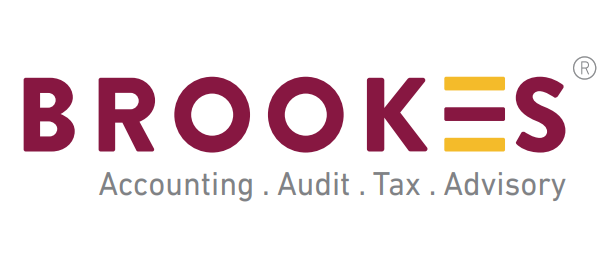Many small and medium-sized enterprises (SMEs) are changing how they do business.
They have found that by adopting sustainability initiatives, they can reduce costs and create new opportunities for growth and profitability. They also recognise this better prepares them for the future. Some have adopted a truly transformational strategy, placing sustainability at the heart of their purpose to make a difference by solving some of the world’s biggest challenges. But there’s evidence that suggests that many more SMEs, struggling from the impact of the Covid-19 pandemic, have neither time to rethink and reshape their supply chains and business models, nor financial resources to do so. Real action on sustainability isn’t yet on their agenda.
Sustainability is an increasingly urgent focus for businesses, large and small. It places an organisation’s environmental and societal impact on the same scale as financial viability. This concept of ‘triple bottom line’ accounting was first coined in 1994, and aimed to integrate social, environmental and financial outcomes - people, planet and profit - to evaluate sustainability.
It has evolved over time encompassing approaches such as CSR (Corporate Social Responsibility), ESG (environment, social and governance), integrated reporting, shared value and impact investing. Now, some enterprises are called ‘for purpose’ or ‘regenerative’ businesses. At a minimum, these concepts help organisations become accountable for their impact; at best, they serve to transform businesses to build prosperity that is truly sustainable.
The World Economic Forum, based on risk perception surveys of more than 650 members of its leadership communities, identifies the failure of effective climate action as the biggest risk facing businesses.
|
TOP 5 Risks by Likelihood |
Top 5 Risks by Impact |
|
Extreme weather |
Infectious diseases |
|
Climate action failure |
Climate action failure |
|
Human environmental damage |
Weapons of mass destruction |
|
Infectious diseases |
Biodiversity loss |
|
Biodiversity loss |
Natural resource crises |
Source: The World Economic Forum Global Risks Report 2021
THE ESG FRAMEWORK
Businesses’ approach to sustainable practices is typically framed using ESG criteria:
E: The environmental impact of a company. Includes energy use and other resource consumption that impacts the natural world, including greenhouse gas emissions, water, waste and recycling
S: The social impact and interactions a company has with employees, suppliers and customers and how its operations affect communities where it does business. It includes respect for human rights, such as the eradication of modern slavery in the supply chain, work practices, health and safety, and diversity and inclusion.
G: Governance refers to how an organisation, through its policies, practices and processes, makes decisions, complies with the law and interacts with external parties.
The universe of sustainability issues
The Sustainability Accounting Standards Board (SASB) has developed standards to “guide the disclosure of financially material sustainability information by companies to their investors.” The standards identify which of 26 issues are most relevant to each of 77 industries. SASB Standards are now maintained under the auspices of the Value Reporting Foundation. In order to create value, focus on sustainability topics that align with your business’ purpose and strategy. Rather than identifying and measuring KPIs straight away, reflect on what is truly important for your business, and why. Then develop a strategy defining actions and targets and produce meaningful KPIs.
SOCIAL CAPITAL
- Human rights & community relations
- Customer privacy
- Data security
- Access & affordability
- Product quality & safety
- Customer welfare
- Selling practices & product labeling
LEADERSHIP & GOVERNANCE
- Business ethics
- Competitive behaviour
- Management of the legal & regulatory environment
- Critical incident risk management
- Systemic risk management
ENVIRONMENT
- Greenhouse gas emissions
- Air quality
- Energy management
- Water & waste water management
- Waste & hazardous materials management
- Ecological impacts
BUSINESS MODEL & INNOVATION
- Product design & life cycle management
- Business model resilience
- Supply chain management
- Materials sourcing & efficiency
- Physical impacts of climate change
HUMAN CAPITAL
- Labor practices
- Employee health & safety
- Employee engagement, diversity & inclusion
Source: Sustainability Accounting Standards Board (SASB), which has since merged to create the Value Reporting Foundation.
The role of SMEs
Small businesses typically have 5–19 employees, and medium-sized 20–199 employees. The EU and Australia define SMEs as independent businesses which employ fewer than 200 people (250 people in the UK). In New Zealand, small businesses have fewer than 20 employees and medium-sized fewer than 50.
SMEs, which include small and mediumsized accounting practices (SMPs), play a central role in every aspect of achieving the Sustainable Development Goals (SDGs) of the United Nations. Small businesses make markets work. Their operations are critical to employment, food production and distribution, construction, health and wellbeing and the delivery of critical services. Collectively, they have a major economic impact.
Many SMEs are preoccupied with survival and growth challenges such as navigating globalisation, digitalisation and the changing nature of work. However, they may find it challenging to see how sustainability could be a force for growth. A new survey by ACCA found that only 8% of SMEs had set net-zero targets for 2050. One in four of the 3,500 respondents said they felt they lacked the professional skills required to become sustainable.
Reasons SMEs may not be embracing sustainability include the lack of:
- awareness about the business case for becoming sustainable
- access to affordable financial resources
- information about how to implement sustainability initiatives
- knowledge about how sustainability initiatives affect business strategy.
Stages of sustainability in SMEs
1.PROFIT-FOCUSED
Focused on maximising profit, increasing sales and market share. Owners may lack awareness or regard sustainability as a burden on business growth and may be skeptical of the impact or benefits from any changes.
2.CONSIDERATION
Awareness and limited adoption of some aspects of sustainability, often due to external pressure from customers or employees, motivated by market opportunity. The main focus is firmly on economic prosperity.
3.IMPLEMENTATION
Deliberately developing sustainable practices and incorporating these into business processes, products and services with the aim of minimising adverse environmental or societal impacts while maintaining economic prosperity.
4.TRANSFORMATION
Sustainability is the main focus and the business purpose is to help resolve environmental, social and governance issues. Creating value for the common good is the main priority while economic prosperity will follow.
Source: Adapted from Dyllick, T.; Muff, K. (2016) Clarifying the meaning of sustainable business: Introducing a typology from business-as-usual to true business sustainability
Sustainability: the business case
Sustainability initiatives present a compelling opportunity for accountants to assist SMEs navigate their own path of change.
SUPPLY CHAIN
As larger organisations face mandatory reporting requirements, their supply chain is coming under increasing scrutiny. Because many SMEs form a significant part of larger businesses’ supply chains, this is a key driver for them to become more sustainable. Demonstrating your commitment to sustainable business raises your profile and enhances your ‘social license’ to operate. Larger organisations will view your business as a low-risk supplier, who can positively contribute to their supply chain, by lowering their carbon footprint or demonstrating proactive steps to eradicate human right abuses. If SMEs aren’t acting, then they risk losing existing contracts/clients or they will soon in the future.
‘PURCHASE ORDER’
The SDGs themselves have been described as a “purchase order from the future” worth an estimated US$12 trillion of market opportunities by 2030. Adopting sustainable practices is increasingly the key to SMEs long-term survival.
COST SAVINGS
Embracing change creates significant opportunities to reduce costs. Water and energy efficiency initiatives and recycling and re-using and reducing waste improve resource allocation, streamlines operations and boosts profitability. There’s also an opportunity cost of failing to act in a timely way, which is likely to lead to a smaller market share and weaker growth as other more progressive businesses attract customers. Saving money this way is particularly important for SMEs affected by the pandemic.
VALUE CREATION
Becoming more sustainable and helping others do the same, gives your organisation a point of difference, improves your brand reputation and perceived goodwill. Increasingly, consumers want brands that reflect their own values and are seeking progressive, environmentally and socially aware products or services, ones with a clearly stated purpose rather than traditional ones. There’s a chasm between conscious consumers demanding sustainable products and the number of companies offering them. Almost half of New Zealanders say they have switched to brands that are more sustainable. In another survey of 834 New Zealanders, 96% felt it important that products were made of material that was repaired, reused or recycled. In a nationally representative survey of 8,000 people in the UK, more than twothirds said they believed businesses have an important role to play tackling societal and environmental issues - with homelessness, unemployment and child education rated most important. SMEs that are seen to be tackling these issues as part of their business will win more loyal customers and improve their brand image.
TALENT
Finding talent can be a challenge for SMEs in many markets. Potential employees are attracted to apply to work at, and stay with, organisations with values that align with theirs, have a cohesive purpose, and are willing to take a stand on social and environmental issues. Creating a purpose-driven business makes your practice or business a more attractive career destination. It bolsters engagement, increases retention and reduces recruitment costs. This ensures long-term viability because it appeals to the next generation of talent. A survey of 23,000 Millennials and Gen Z in 45 countries found that climate change was their top concern.
INVESTMENT
When SMEs are looking to expand they typically need capital. Investors, funds, capital markets and financial institutions are encouraging, if not requiring, companies to disclose non-financial risks and demonstrate their commitment to more sustainable business practices. Investors want companies to anticipate and manage climate-related risks which will reduce operating risks and costs in the future. A survey of UK investment funds that focus on SMEs and micro enterprises found 87 per cent believe the focus on ESG issues will increase over the next 12 months with 31 per cent expecting a dramatic increase in the next year.
RESILIENCE AND INNOVATION
The biggest risk is business as usual. SMEs need to focus on sustainability and embed it into all decision-making. This leads to better risk management and strategic planning. They’ll become more resilient, bouncing back quicker in uncertain, volatile situations. Accountants can position themselves to cultivate this cultural mindset by keeping business owners, boards and managers well-informed and ensuring the appropriate systems are in place so that everyone adheres to the same values. Lessons SMEs learned during COVID-19 can be transferred to the sustainability journey. Many SMEs faced a sharp drop in revenue and closed temporarily. They also had an opportunity to innovate and build more resilience as many pivoted to survive. (Source: ACCA Global Publication)
For further enquires or assistance, please contact us


